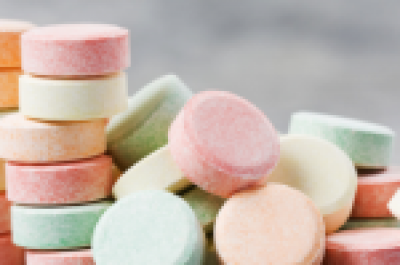The Hidden Dangers of PPIs and Antacids

Millions of people take proton pump inhibitors (PPIs) and antacids to relieve heartburn, acid reflux, and indigestion. These medications promise fast relief, but what if they’re actually making your health worse in the long run?
At Intentional Wellness, Inc., we take a functional medicine approach to health. That means we focus on addressing the root cause of digestive issues instead of just masking symptoms. If you rely on PPIs or antacids for heartburn, you need to know the risks—and a better way to heal your gut naturally.
Why Stomach Acid is NOT the Enemy
We’ve been told that too much stomach acid is the cause of heartburn and reflux, but in most cases, the opposite is true—low stomach acid is the real problem.
Stomach Acid is Essential for Digestion
Your stomach is supposed to be highly acidic (with a pH of 1.5 to 3.5) to break down food, absorb nutrients, and kill harmful bacteria. When acid levels are too low, food sits in the stomach longer, leading to fermentation, gas, and pressure—which pushes acid back into the esophagus, causing heartburn.
Low Acid = Poor Nutrient Absorption
Your body needs stomach acid to absorb key nutrients like vitamin B12, iron, calcium, magnesium, and zinc. Long-term acid suppression can lead to nutrient deficiencies, fatigue, weak bones, and even neurological issues.
Acid Protects You from Infections
Stomach acid is your first line of defense against harmful bacteria, parasites, and fungi. When acid is too low, these pathogens can thrive, increasing the risk of gut infections, small intestinal bacterial overgrowth (SIBO), and candida overgrowth.
Reflux is Often Caused by Weak Stomach Function
Instead of producing too much acid, most people with reflux aren’t producing enough. This weakens the lower esophageal sphincter (LES), the muscle that prevents acid from escaping into the esophagus. Without enough acid, the LES stays open, leading to chronic heartburn and reflux.
The Hidden Dangers of PPIs and Antacids
While PPIs and antacids offer temporary relief, they don’t solve the underlying issue—and long-term use can lead to serious health problems.
Nutrient Deficiencies
PPIs block stomach acid, making it hard to absorb vital nutrients like B12, iron, magnesium, and calcium. Over time, this can lead to fatigue, anemia, osteoporosis, muscle cramps, and nerve damage. Studies show that long-term PPI use increases the risk of fractures, dementia, and heart disease.
Increased Risk of Infections
Without stomach acid to kill harmful bacteria, people on PPIs are more likely to develop gut infections like H. pylori, C. difficile, and SIBO. These infections can lead to chronic bloating, diarrhea, and inflammation.
Rebound Acid Hypersecretion
Many people become dependent on PPIs because stopping them suddenly causes even worse acid reflux. This happens because the body tries to compensate for low acid by producing extra acid when the medication is stopped. Instead of curing heartburn, PPIs create a vicious cycle of dependence and worsening symptoms.
Higher Risk of Kidney Disease and Heart Issues
Studies have linked long-term PPI use to an increased risk of chronic kidney disease, heart attacks, and stroke. The exact reason isn’t fully understood, but researchers believe nutrient deficiencies, gut imbalances, and inflammation play a role.
How to Heal Heartburn and Reflux Naturally
Instead of relying on acid-blocking medications, functional medicine focuses on healing the gut and restoring proper stomach acid levels. Here’s how:
Support Stomach Acid Production
- Apple Cider Vinegar – Try 1 tsp of raw, unfiltered apple cider vinegar in water before meals to support digestion.
- Digestive Bitters – Herbal bitters stimulate natural acid production and improve digestion.
- Betaine HCL Supplements – If you have low stomach acid, a betaine HCL supplement with meals can help digestion (check with a health professional first).
Eat a Gut-Healing Diet
- Eat Whole, Unprocessed Foods – Focus on vegetables, healthy fats, grass-fed meats, and fermented foods to heal the gut lining.
- Get Enough Protein – Stomach acid is needed to break down protein, so eating high-quality protein supports digestion.
- Avoid Trigger Foods – Gluten, dairy, processed sugar, and alcohol can irritate the gut and cause inflammation.
Strengthen the Gut Lining
- Bone Broth & Collagen – Help repair the gut lining and reduce inflammation.
- Probiotics & Fermented Foods – Restore good bacteria and balance gut flora.
- Aloe Vera & Licorice Root – Soothe and heal esophageal irritation.
Improve Digestive Function
- Manage Stress – Chronic stress lowers stomach acid production. Practice deep breathing, meditation, or gentle movement.
- Eat Mindfully – Chew food thoroughly and avoid eating in a rushed or stressed state.
- Stay Active – Light movement after meals helps prevent reflux and improves digestion.
You Don’t Have to Rely on Medications Forever!
If you’ve been taking PPIs or antacids for years, it’s not too late to heal your gut and break free from the cycle of acid suppression. At Intentional Wellness, Inc., Shannon can help you:
Identify the root cause of your acid reflux or digestive issues
Heal your gut naturally with a personalized nutrition and lifestyle plan
Safely reduce or stop acid-blocking medications with professional guidance
Ready to reclaim your digestive health?
Sign up for health coaching with Shannon today!




